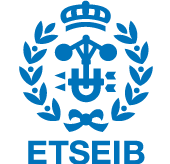BD ITEA Frequently Asked Questions
Access to the studies:
Anyhow, it is important to mention that the universities and foreign centres do ask for certain language certifications in the moment of the application for international academic mobility stays. Therefore, it is advised to follow the usual channels for obtaining certificates that allow the candidates to accredit the pertinent language competence.
In the first allocation of university pre-enrolments of the years 2022, 2021, 2020 and 2019, for which there were 50 places offered, the access cut-off mark was set on 12.504, 12.548, 12.526 and 12.024/14 respectively.
In the first allocation of university pre-enrollments of the year 2018 for the 2018-2019 academic year, for which there were 40 places offered, the access cut-off mark was set on 12.102/14.Yes, it is possible to change from another bachelor’s degree, although the number of places allocated to this access mode is rather small and it is necessary to fulfil certain requisites.
To begin this procedure, it is necessary to start asking for a pre-study on the possibility of credits recognition (“sol·licitud d'estudi previ de reconeixements de crèdits”) at the “secretaria” of the Escola Tècnica Superior d’Enginyeria Industrial de Barcelona (ETSEIB).
For more information on this, visit: https://etseib.upc.edu/ca/estudis/tramits/tramits-relacionats-amb-lacces/acces-grau-per-canvi-estudis
Teaching, training and curriculum:
Functioning of the studies:
In the periods with teaching in the two universities, the schedules are configured to avoid the need to attend in the same day to the two campuses (Campus Sud or Ciutadella). It is also possible to be able to participate in the university life, so that Wednesdays are days at the UPF (so to be able to enjoy the “Aula de Cultura”) and Thursdays are UPC days (so to be able to participate in the activities of the “Franja Cultural”).
The schedules consist in a single large group of theory ("lectures", with all participants) that can be divided in small groups of problems or laboratory ("seminars", smaller, depending on the subject).
There is a single timetable configuration that contains both teaching in the morning and in the afternoon; especially in the teaching periods at the UPF, where the duration of the terms is shorter (eleven weeks). However, not every day of the week have both schedules, maybe some days there are only classes in the morning or only in the afternoon. Also, in some of the weeks, some of the days have no teaching (for example because teaching at UPC has already started but not yet at UPF). It is assumed, however, that this time is to be devoted to personal study, since it is a full-time program (see questions about teaching, training and curriculum).
The schedules are designed to avoid having to change the campus on the same day of the week in order to follow the subjects of the same period. The number of days at each campus vary depending on the number of subjects to follow in each centre each period.
All these aspects are also considered when setting exam dates and other evaluation activities.
Mobility, internships and scholarships:
Also, it receives sponsoring of the Fundació Barcelona Education in Science and Technology and its Study aid programme (http://fbest.org/becas/?lang=es).
Professional career:
- The direction and management of projects, facilities, plants, companies and technology centres in industrial sectors as diverse as energy, automotive, iron and steel and metallurgy, chemistry, robotics, automobile and rail, metallic, mechanical and electrical construction, intelligent materials, nanotechnology or bioengineering, among others.
- The calculation and design of products and processes, with scope for the economic situation, the sector, the market and the business activities.
- Strategic, micro and macroeconomic planning, quality management and environmental management.
- Research, development and innovation in products, processes and methodologies, and the analysis of the implications in its management.
- Leadership and management of economic environments undergoing change.
- The economy and management of companies in the regulated sectors and network services.


